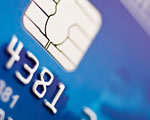 Go to main content
Go to main content
Archive Website of the UK government
Please note that this website has a UK government accesskeys system.
Main menu
Page menu
Money, tax and benefits

Types of bank account

There are two types of bank account for managing everyday money: a basic bank account and a current account. Banks also offer a range of accounts designed for medium or longer-term savings. Savings or 'term' accounts usually pay more interest than current accounts.
Basic bank accounts
Basic bank accounts offer a convenient place to keep money you need for everyday use. You can arrange to have wages, State Pension and benefits or tax credits paid into one. You can also pay in cheques or cash free of charge, and set up 'direct debits' which pay regular bills automatically from your account.
With a basic bank account you get a cash card which you can use at a bank machine to withdraw cash. Some also offer a 'debit card' that you can pay for items with, and get 'cashback'; but with a basic account these will only work if there's enough money in your account.
You don't get a cheque book with a basic bank account, and you can't take out more money than is in the account ('go overdrawn'). For this reason basic bank accounts are useful for anyone worried about overspending.
Current accounts
Current accounts have more features than basic bank accounts. For example, they usually offer:
- cheque book
- cheque guarantee card (acts as a 'guarantee' so makes cheques more widely acceptable)
- debit card (some allow payments without checking your account)
- direct debits (automatic bill payments direct from your account)
- standing orders (regular set payments from your account to someone of your choice)
- BACS (Bankers' automated clearing service) - the facility to accept payments directly into your account (eg from your employer), or for you to make one-off payments to someone else out of the account
- overdraft facility - the bank may allow you to go overdrawn up to a certain amount; but you need to arrange this in advance and charges apply (you pay extra charges if you go overdrawn without an agreement)
Some current accounts pay interest on money you leave in the account, but the rate is usually low.
Savings accounts
Banks offer a wide range of savings accounts. The main differences between them are how quickly you can get at your money, the minimum amount required to keep the account open and the type and rate of interest paid.
Many credit unions offer savings accounts, where you can pay money in and take money out. You can also have your benefits or wages paid straight into some Credit Union accounts.
Some Credit Unions offer budgeting accounts, where you pay in a set amount each week/month and they then pay agreed household bills as they become due.
A few Credit Unions now also offer current accounts and the 'moneylines' can also help you to open an account.
Bank accounts and your rights
The Financial Services Authority (FSA) regulates the way bank and building societies do business with you. You can get a copy of their guide 'Your bank account' from the FSA website or your bank or building society.
The FSA also ensures that banks and building societies are financially sound. You may be protected through the 'Financial Services Compensation Scheme' up to a set limit if your bank collapsed.
If you want to make a complaint, banks and building societies must help by having internal procedures and belonging to the Financial Ombudsman Service (an impartial service that can help settle disputes).
Choosing the right account for you
When choosing which bank account is right for you, make sure you know which questions to ask.
Think about charges
Banks typically charge you if you go overdrawn without arranging an overdraft first, or if you exceed your limit on an arranged overdraft.
These charges can, in some cases, add up to hundreds of pounds. To avoid big charges you should:
- know how much money you have in your account
- keep track of things like direct debits and cheques which may take you by surprise
- switch to a cheaper account if you think your banks charges are too high
Visit your bank's website to see how much they charge for going overdrawn.
Shop around
When you are choosing a current account think about:
- what type of account you need
- if you'll be offered an overdraft and how it will cost
- the interest rate for an authorised overdraft
- if there is a different rate for unauthorised overdrafts
- other things you may be charged for - for example, using your debit card abroad?
- do you need to pay in a minimum amount each month to qualify for certain features (such as particular interest rates or charges)
- the credit interest rate when you are in credit
- if there is more than one rate
- any non-financial benefits that come with the account
- any other important features that come with the account?
More useful links
Useful contacts
Additional links
Foreign-owned banks

Should a bank fail, compensation schemes protect your savings. But foreign-owned banks may be covered in other ways
 Facebook
Facebook Twitter
Twitter StumbleUpon
StumbleUpon Delicious
Delicious Reddit
Reddit
